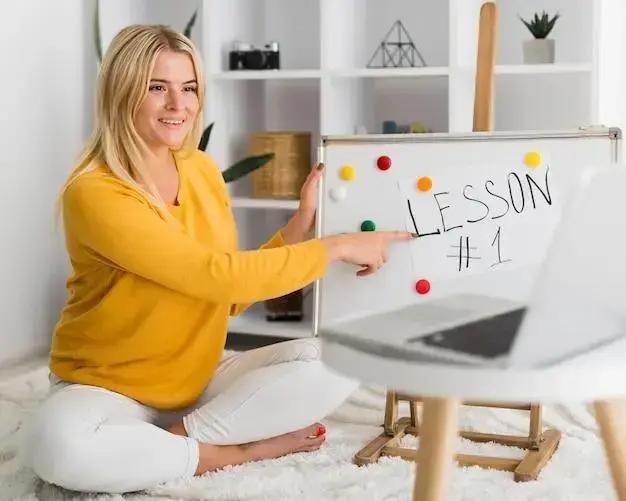If you’ve ever dreamed of playing the piano, you’re not alone! Many people wonder what’s the best way to learn piano. Whether you’re a complete beginner or looking to brush up on your skills, there are some effective strategies that can help you get started. In this post, we’ll explore the best way to learn piano, focusing on key tips and resources that can make your journey enjoyable and productive.
1. Start with the Basics: Understanding Piano Keys
Before diving into playing your favorite songs, it’s essential to get familiar with the piano keys.
The piano has 88 keys, consisting of both white and black keys. The white keys represent the natural notes (A, B, C, D, E, F, G), while the black keys are for the sharps and flats.
To make it easier, let’s break it down:
- White Keys: These are the keys you’ll use most often. They are named after the first seven letters of the alphabet: A, B, C, D, E, F, and G. After G, the pattern repeats.
- Black Keys: These keys are grouped in sets of twos and threes. They represent the sharps and flats of the white keys. For example, the black key between C and D is C# (C sharp) or Db (D flat).
- Middle C: This is a crucial note for beginners. It’s located near the center of the piano and serves as a reference point for finding other notes.
Understanding Piano Keys
Once you’ve got a grip on the layout, try playing simple scales. Start with the C major scale, which uses only the white keys: C, D, E, F, G, A, B, and back to C. This will help you get comfortable with finger placement and movement.
Understanding the piano keys is your first step toward becoming a proficient player. Take your time, practice regularly, and soon you’ll be ready to tackle more complex pieces!
2. Choose the Right Learning Method: Online vs. In-Person
When it comes to learning piano, one of the biggest decisions you’ll face is whether to go with online lessons or in-person classes. Each method has its pros and cons, so let’s break it down to help you find what works best for you.
Online Lessons: These have become super popular, especially with the rise of technology. Here are some benefits:
- Flexibility: You can learn at your own pace and on your own schedule. Whether you’re a night owl or an early bird, online lessons fit into your life.
- Variety of Resources: There are tons of apps, YouTube channels, and websites offering lessons. You can find everything from beginner tutorials to advanced techniques.
- Cost-Effective: Online lessons often come at a lower price than traditional lessons, making it easier on your wallet.
However, online learning might lack personal interaction, which can be a downside for some.
In-Person Lessons: If you prefer face-to-face interaction, in-person lessons might be the way to go. Here’s why:
- Personalized Feedback: A teacher can give you immediate feedback and tailor lessons to your specific needs, helping you improve faster.
- Structured Learning: Having a set schedule can keep you accountable and motivated to practice regularly.
- Social Interaction: Learning with others can be encouraging and make the process more enjoyable.
Of course, in-person lessons can be more expensive and less flexible than online options.
Ultimately, the best choice depends on your learning style, budget, and personal preferences. Consider trying both methods to see which one resonates with you more. Remember, the goal is to enjoy the journey of learning piano!
3. Practice Regularly: Creating a Consistent Routine
When it comes to learning piano, consistency is key! Just like any skill, the more you practice, the better you’ll get. But how do you create a routine that sticks? Let’s dive into some tips to help you practice regularly.
Set a Schedule: First things first, find a time that works for you. Whether it’s early in the morning, during your lunch break, or in the evening, pick a time that you can commit to. Try to practice at the same time every day to build a habit.
Start Small: If you’re just starting out, don’t overwhelm yourself. Aim for short, focused practice sessions—about 20 to 30 minutes a day is a great start. As you get more comfortable, you can gradually increase the time.
Mix It Up: To keep things interesting, vary your practice routine. Spend some time on scales, then switch to a song you love, and maybe even try some sight-reading. This variety will keep you engaged and help you develop different skills.
Set Goals: Having clear goals can motivate you to stick to your routine. Whether it’s mastering a particular song or improving your speed on scales, setting achievable goals gives you something to work towards.
Track Your Progress: Keep a practice journal or use an app to log your sessions. This not only helps you stay accountable but also allows you to see how far you’ve come over time.
Remember, it’s all about quality over quantity. Focus on making each practice session count, and soon enough, you’ll notice significant improvements in your playing. Happy practicing!
4. Utilize Technology: Apps and Online Resources
In today’s digital age, learning piano has never been easier thanks to technology! There are countless apps and online resources designed to help you master the piano, no matter your skill level. Let’s explore some of the best tools available.
Utilize Technology: Apps and Online Resources
Piano Learning Apps: There are several fantastic apps that make learning fun and interactive. Here are a few popular ones:
- Simply Piano: This app is perfect for beginners. It listens to you play and provides instant feedback, helping you improve as you go.
- Piano Marvel: With a vast library of songs and lessons, this app offers structured learning paths and progress tracking, making it easy to stay motivated.
- Yousician: This app gamifies your learning experience, turning practice into a fun challenge. It covers various instruments, including piano, and offers real-time feedback.
Online Courses: If you prefer a more structured approach, consider enrolling in online courses. Websites like Udemy, Coursera, and MasterClass offer comprehensive piano courses taught by experienced instructors. You can learn at your own pace and revisit lessons whenever you need.
YouTube Tutorials: YouTube is a treasure trove of free piano tutorials. Channels like Piano Video Lessons and Josh Wright Piano offer step-by-step guides for songs and techniques. Just search for your favorite song, and you’ll likely find a tutorial to help you learn it!
Sheet Music Resources: Websites like MusicNotes and MuseScore provide access to a wide range of sheet music. Whether you’re looking for classical pieces or the latest pop hits, you can find scores to practice with.
Utilizing these technological resources can enhance your learning experience and make practicing more enjoyable. So, don’t hesitate to explore the digital world of piano learning—it’s full of exciting possibilities!
5. Stay Motivated: Setting Goals and Tracking Progress
Learning piano can be a rewarding journey, but let’s be honest—it can also be challenging at times. Staying motivated is crucial to keep you moving forward. Here are some tips to help you set goals and track your progress effectively.
Stay Motivated: Setting Goals and Tracking Progress
Set SMART Goals: When it comes to goal-setting, think SMART: Specific, Measurable, Achievable, Relevant, and Time-bound. Instead of saying, “I want to get better at piano,” try something like, “I want to learn to play ‘Let It Be’ by the end of the month.” This gives you a clear target to aim for!
Break It Down: Large goals can feel overwhelming, so break them into smaller, manageable tasks. For example, if your goal is to learn a new song, start by mastering the first few measures, then gradually work your way through the rest.
Track Your Progress: Keeping a practice journal can be incredibly helpful. Write down what you practiced each day, any challenges you faced, and what you accomplished. This not only helps you stay accountable but also allows you to reflect on your growth over time.
Celebrate Milestones: Don’t forget to celebrate your achievements, no matter how small! Whether it’s playing a song without mistakes or mastering a tricky scale, take a moment to acknowledge your hard work. Treat yourself to something special as a reward!
Stay Inspired: Surround yourself with inspiration. Listen to your favorite piano pieces, watch performances, or connect with other learners. Joining a local music group or online community can provide support and encouragement from fellow piano enthusiasts.
Remember, the journey of learning piano is just as important as the destination. By setting goals and tracking your progress, you’ll stay motivated and enjoy every step of the way!
Embarking on your piano learning journey can be both exciting and daunting, but with the right approach, you can make it a fulfilling experience.
By starting with the basics and understanding the piano keys, choosing the right learning method, and practicing regularly, you lay a solid foundation for your skills.
Utilizing technology through apps and online resources can enhance your learning, while setting goals and tracking your progress keeps you motivated and focused.
Conclusion
Remember, every pianist started as a beginner, and the key is to enjoy the process.
So, embrace the challenges, celebrate your achievements, and keep playing.
With dedication and passion, you’ll be amazed at how far you can go on this musical journey!
Frequently Asked Questions about Learning Piano
What is the best way to start learning piano?
Start by understanding the basics of piano keys and consider using beginner-friendly apps or online resources.
Should I choose online lessons or in-person classes?
It depends on your learning style. Online lessons offer flexibility, while in-person classes provide personalized feedback.
How often should I practice piano?
Aim for regular practice sessions of 20 to 30 minutes a day to build consistency and improve your skills.
What apps are recommended for learning piano?
Popular apps include Simply Piano, Piano Marvel, and Yousician, which offer interactive lessons and feedback.
How can I stay motivated while learning piano?
Set SMART goals, track your progress, and celebrate milestones to keep your motivation high throughout your learning journey.
Is it important to learn music theory while learning piano?
While not mandatory, understanding basic music theory can enhance your playing and help you grasp concepts more easily.





